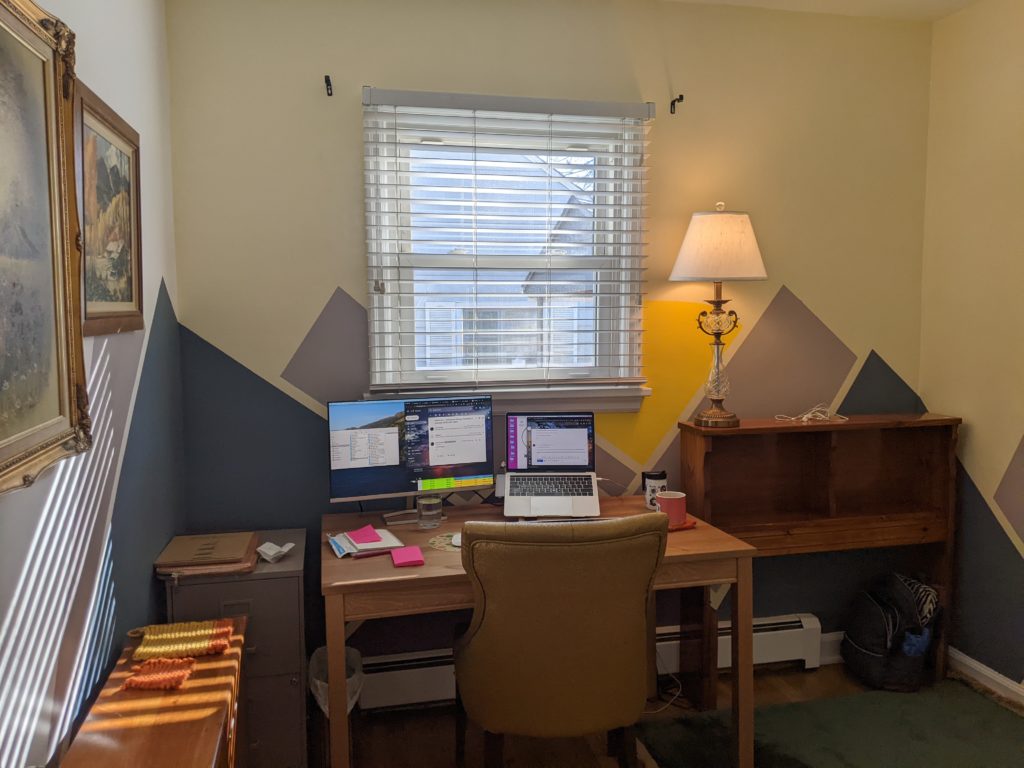So far, my working less experiment this year is an experiment in catching up on all the things I didn’t have time to do when I was working more: the calls, the appointments, the paperwork.
Then there’s also the ironically time-taking tasks that new levels of working for yourself creates: setting up a new LLC/S-corp, banking, systems – plus new client intake processes and onboarding.
It’s also looked a lot like time-allowing. Time to stare at the wall, allowing the things I’d pushed forward to finally get a priority moment, including some fun creativity

To me, the financial parallels of “more time” and the transition to making / having more money are neon.
First, you have to catch up on all the shit you put off because you couldn’t afford it. You don’t initially feel much like you have more money, because it’s going out the door. You’re also allowing more money to move, because you have it available. There’s an initial transition period in which you’re shifting between states of reality. And, the broker you were, the larger the shift.
My doctor friend said she was told the first two years of having a job after med school were the years you were allowed to just spend and enjoy your money. For me, the first year I started making more than bare minimum [when I got a $60k job in 2016], I was shocked that it didn’t feel like the moneybags I’d hoped for, as I shelled out for a dental implant, socked a lil bag of money away, and bought a New Job Interview Blazer. Catchup from behind is real, and it messes with your perception of the present.
Time is perception, as any trip or stoned zone-out will remind you.
In How to Do Nothing [my new fav book], Jenny Odell talks about how time seems to slow when you slow your attention. My initial concept for my experiment was to have less days on clock time, as in – no looking at a clock, creating a sense of spaciousness in time after so much scarcity about it. How might I increase my moments of stretchy time?
In Slaughterhouse-Five, science fiction writer and physicist Kurt Vonnegut describes time as looking like a caterpillar to any creature able to see it as a dimension instead of experiencing it as a series of moments. It’s a space to move within, not past. What if time is not a controllable moment, but a series of connections? Then, the role of memory in our experiences of time becomes important.
When I got my next middle class job paying me $125k, I got a second (and more fun) blazer, bumped up my donating, and started hella saving for a down payment and retirement – while it still took another year, the shift to “babe you’re not broke anymore” started to feel real. The shift was a matter of memory: remembering to act from now-reality [resourced reality], not then-reality [scarcity reality]. I still am acutely aware of the gap from then-to-now, but I am experiencing today’s financial reality more and more.
My lesson there is that the memory perception of the past doesn’t leave you, even as you live the present. It’s part of what makes a class straddle a mind fuck, and part of why I am not yet pressed about time and my experiment, though I am monitoring it closely. I want to make sure I change my experience of time, even if I know I won’t forget how I’ve been treating it for so long.
In a recent Money Like You Mean To workshop, time planning and management came up. I put together an exercise of prompts to do a Time Accounting. I’m sharing it with all of you because time is a critical resource pool, and our attention to how we use it determines the quality of our lives. Plus, making basic circle charts can be very satisfying 🙂
You can join the next week-long Money Like You Mean To workshop, for personal finance this Sunday Feb 20, or for Freelance/Solo business development on March 20.
And, if you want to know more about what it’s like to face the music about how a LOT of time has passed, and you have to get back on your game, listen to the recent Bottom Lines Top Dollars pod, Coming Back from some Bullshit.